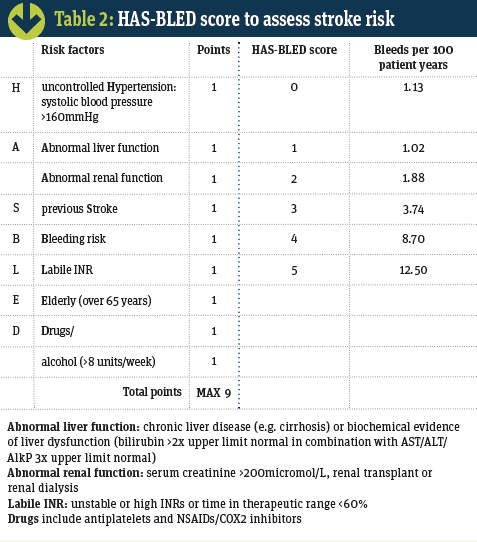
Patients with AF will also have an assessment of bleeding risk. This should not be used as a reason not to anticoagulate a patient but rather to identify any bleeding risk factors that can be modified to reduce the patient’s risk.
The most commonly used bleeding risk score for AF patients is the HAS-BLED score (see Table 2 above). Modifiable bleeding risk factors include:
- Ensuring good blood pressure control as high blood pressure increases the risk of cerebral haemorrhage
- If prescribed warfarin, ensuring that the INR is maintained within the desired therapeutic range (for AF the usual INR range is 2.5 +/-0.5)
- Review of medication – are there any other medicines prescribed that increase bleeding risk? Can these be stopped? For example, NSAIDs, aspirin or other antiplatelet agents or SSRI antidepressants
- Can the patient reduce his/her alcohol intake?
It should be noted that the risk of falls should not be used as the sole criteria for not offering anticoagulation to a patient, although this may be taken into account as part of an overall assessment of suitability and/or frailty.
